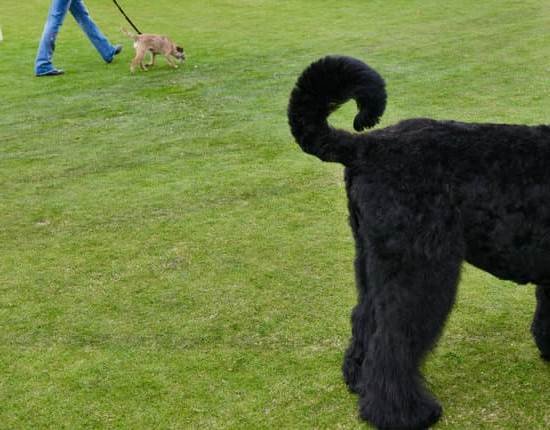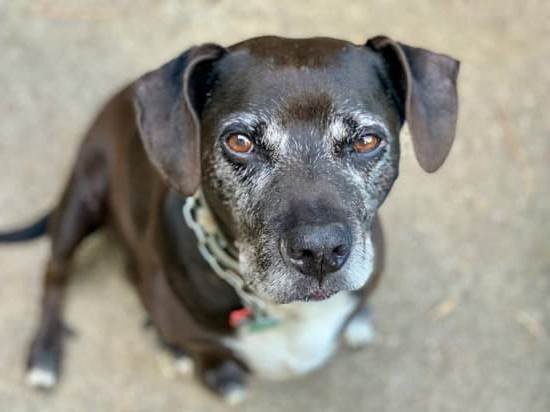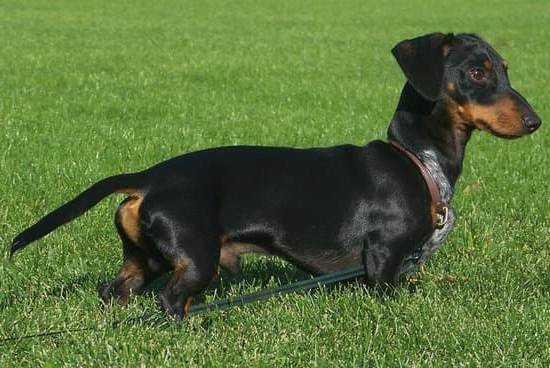Are you considering bringing a small dog into your home and wondering what is the best small dog to train? Training a small dog can be an incredibly rewarding experience, but it’s important to choose a breed that is well-suited for training. In this article, we will explore the characteristics of highly trainable small dog breeds and provide insights on the top 5 small dog breeds known for their trainability.
Additionally, we will discuss training tips and techniques specific to small dog breeds, as well as the importance of positive reinforcement in their training. We will also touch on some small dog breeds to avoid for training purposes and dive into real-life success stories of small dog training.
When it comes to choosing the best small dog breed for training, it’s essential to consider certain characteristics that make a particular breed more trainable than others. Some small breeds are naturally more eager to please, intelligent, and adaptable, making them easier to train. Understanding these traits can help you make an informed decision when selecting a small dog breed that suits your lifestyle and training goals.
Throughout this article, we aim to provide valuable insights and recommendations for anyone looking to embark on the exciting journey of training a small dog. Whether you’re a first-time dog owner or experienced trainer, our comprehensive guide will equip you with the knowledge needed to choose the best small dog breed for training success. So let’s dive in and explore the world of highly trainable small dog breeds.
Characteristics of a Highly Trainable Small Dog
When it comes to training a small dog, it is important to consider the characteristics that make a particular breed highly trainable. These traits can greatly impact how successful the training experience will be for both the dog and the owner. Small dogs that are highly trainable tend to possess certain qualities that make them more receptive to learning and following commands.
Intelligence and Eagerness to Please
One of the most important characteristics of a highly trainable small dog is intelligence. Breeds such as the Poodle, Shetland Sheepdog, and Border Collie are known for their high intelligence, making them quick learners when it comes to obedience training and tricks. Additionally, small breeds that have an eagerness to please their owners are often more responsive during training sessions. This desire to make their owners happy can make the training process smoother and more rewarding.
Energy Level and Focus
Another key characteristic of a highly trainable small dog is their energy level and ability to focus. Small breeds like the Papillon, Miniature Schnauzer, and Cavalier King Charles Spaniel are known for their high energy levels and ability to stay focused during training exercises. This allows for longer training sessions without losing the dog’s attention, resulting in better outcomes in terms of learned behaviors.
Sociability
Sociability is also an important trait in small dogs that can make them easier to train. Breeds such as the Pembroke Welsh Corgi, Australian Terrier, and Havanese tend to be sociable by nature, making them more open to interacting with people and other animals during training sessions. This can lead to a more well-rounded and adaptable companion when it comes to obedience and behavior training.
Understanding these characteristics can help prospective dog owners choose the best small breed for their lifestyle and training goals. By considering a dog’s intelligence, eagerness to please, energy level, focus, and sociability, individuals can select a small breed that will be more likely to excel in various types of training programs.
Top 5 Small Dog Breeds Known for Trainability
When it comes to small dog breeds, some are known for their exceptional trainability. Whether you’re looking for a companion to perform tricks or one that can be easily house trained, certain breeds stand out for their intelligence and obedience. If you’re wondering “what is the best small dog to train,” consider the following top 5 small dog breeds known for their trainability.
One of the most popular small dog breeds for training is the Pembroke Welsh Corgi. These intelligent and eager-to-please dogs excel in obedience training and are quick learners. Their herding background also makes them attentive and responsive to commands, making them a great choice for various types of training.
Another highly trainable small dog breed is the Miniature Poodle. Known for their intelligence and hypoallergenic coats, Miniature Poodles are not only easy to train but also excel in agility and obedience competitions. Their willingness to learn and please their owners makes them an ideal choice for those looking for a trainable small dog breed.
The Shetland Sheepdog, or Sheltie, is also considered one of the best small dog breeds for training. With their sharp intellect and eagerness to work, Shelties thrive in obedience training as well as advanced tricks and agility exercises. Their loyalty and strong bond with their owners make them receptive to training efforts.
Additionally, Papillons are renowned for their trainability despite their small stature. These energetic and intelligent dogs are adept at learning new commands and performing tricks. Their outgoing nature makes them eager participants in various forms of training, from basic obedience to more advanced activities such as rally or flyball.
Lastly, Boston Terriers are another small breed known for being highly trainable. Their intelligence, combined with a friendly disposition, makes them responsive to training efforts. Whether it’s basic obedience or fun tricks, Boston Terriers love engaging with their owners through training sessions.
When considering what is the best small dog to train, these top 5 small dog breeds known for trainability should be at the top of your list due to their intelligence, willingness to please, and ease of learning new commands and skills. Each of these breeds offers unique qualities that make them stand out as excellent choices for anyone looking for a trainable small dog companion.
Training Tips and Techniques for Small Dog Breeds
Small dog breeds are often stereotyped as yippy, anxious, and difficult to train. However, this is not always the case. With the right techniques and consistency, small dogs can be just as obedient and well-behaved as their larger counterparts. Here are some useful training tips and techniques for small dog breeds that will help you bring out the best in your canine companion.
First and foremost, it’s important to establish yourself as the pack leader. Small dogs can have a tendency to develop “small dog syndrome” if not properly trained. This means they believe they are in charge and can exhibit behaviors like excessive barking, guarding resources, and even aggression. Setting clear boundaries and being consistent with your training will help your small dog understand their place within the household.
Additionally, positive reinforcement is key when training small dog breeds. Rewarding good behavior with treats, praise, or playtime will motivate them to continue behaving well. Using force or punishment with a small dog can be counterproductive and may lead to fear or anxiety. By focusing on positive reinforcement, you’ll build a strong bond with your small dog while teaching them what behaviors are desirable.
Consistency is also crucial when training small dog breeds. Training sessions should be short but frequent, focusing on one command or behavior at a time. Small dogs can have short attention spans, so keeping training sessions engaging and fun will help them stay focused and eager to learn.
| Training Tip | Description |
|---|---|
| Use Positive Reinforcement | Reward good behavior with treats or praise |
| Establish Clear Boundaries | Show your small dog that you are the pack leader |
| Be Consistent | Keep training sessions frequent but short for maximum impact |
By following these tips and techniques, you can ensure that your small dog becomes well-mannered, obedient, and a joy to be around. Remember that every dog is unique, so tailor your training approach to suit your individual canine companion’s needs.
The Importance of Positive Reinforcement in Small Dog Training
Small dog training requires patience, consistency, and positive reinforcement. Positive reinforcement is a training technique that involves rewarding your small dog for exhibiting the desired behavior. This type of training method has been proven to be effective in teaching small dogs new commands and tricks, as well as modifying their behavior. By using positive reinforcement, you can create a strong bond with your small dog while also fostering a happy and enjoyable learning experience for them.
Here are some key reasons why positive reinforcement is essential in small dog training:
– It builds trust and strengthens the bond between you and your small dog.
– It increases the likelihood of your small dog repeating the desired behavior.
– It helps to create a positive association with training sessions and learning new commands.
– It reduces the risk of fear or anxiety in your small dog during training.
To effectively implement positive reinforcement in small dog training, consider using the following methods:
1. Use treats: Offer your small dog their favorite treat as a reward for obeying commands or displaying good behavior during training sessions.
2. Verbal praise: Cheerfully praise your small dog with encouraging words such as “Good boy/girl” or “Well done” to reinforce their positive behavior.
3. Toys: Incorporate playtime with a favorite toy as a form of reward for your small dog’s accomplishments during training.
By making use of these positive reinforcement techniques, you can create an enjoyable and successful training experience for your small dog while achieving long-term behavioral results. Remember to always stay patient, consistent, and loving throughout the training process to nurture a well-behaved and well-adjusted small dog companion.
As part of this article about choosing the best small dog breed for training success, it is crucial to understand how positive reinforcement plays a pivotal role in shaping the behavior and obedience of these tiny companions. Choosing the right breed is important but knowing how to train them positively leads to successful outcomes.
Small Dog Breeds to Avoid for Training Purposes
When it comes to small dog breeds, not all of them are equally easy to train. In fact, there are certain breeds that may present more challenges when it comes to training due to their natural inclinations and behaviors. It is important to consider this when choosing the best small dog for training.
Stubborn Breeds
Certain small dog breeds are known for their stubborn nature, making them less receptive to training. Breeds such as Chihuahuas and Dachshunds are infamous for their independent streak and can be more difficult to train compared to other breeds. Their strong-willed personality may require a more patient and consistent approach to training.
High-Energy Breeds
Small dog breeds that are highly energetic, such as Jack Russell Terriers and Yorkshire Terriers, may also pose a challenge when it comes to training. Their endless energy levels can make it difficult for them to focus during training sessions, requiring extra effort from the trainer in terms of physical activity and mental stimulation.
Breeds Prone to Barking
Some small dog breeds have a tendency to bark excessively, which can make training particularly challenging. Breeds like the Shih Tzu and Pomeranian are known for their vocal nature and may require extra attention when it comes to proper behavior and obedience training.
Real-Life Success Stories of Small Dog Training
Training a small dog can be a fulfilling experience, and many owners have successful stories to share. Here are some real-life success stories of small dog training that will inspire and motivate you:
1. Bella the Chihuahua: Bella was a 3-year-old Chihuahua who used to bark incessantly and had separation anxiety. Her owner, Sarah, was determined to train her and worked tirelessly on positive reinforcement techniques. After consistent training and patience, Bella now greets guests calmly and can stay alone at home without exhibiting any signs of stress.
2. Max the Pomeranian: Max was a rescue Pomeranian who was fearful of strangers and other dogs. His owner, Michael, enrolled him in obedience classes specifically tailored for small breeds. With the help of professional trainers and socialization exercises, Max has now overcome his fearfulness and enjoys trips to the dog park without any issues.
3. Daisy the Shih Tzu: Daisy was an energetic Shih Tzu who used to jump on people whenever she got excited. Her owner, Emily, implemented clicker training to redirect Daisy’s energy into more appropriate behaviors. Now, Daisy sits politely for attention and follows commands like “stay” and “come” flawlessly.
Seeing these success stories demonstrates that with dedication, patience, and the right training methods, any small dog breed can be trained effectively for various behaviors including obedience, socialization, and even specialized tasks such as therapy or agility work.
Remember that every dog is unique so what works for one may not work for another; however keep in mind these real-life narratives as proof that consistent training efforts can yield great results regardless of breed or size.
Conclusion
In conclusion, when it comes to choosing the best small dog breed for training success, there are several factors to consider. From the characteristics of a highly trainable small dog to the importance of positive reinforcement in training, it is clear that some breeds are more suited for training than others. The top 5 small dog breeds known for their trainability include the Poodle, Shetland Sheepdog, Papillon, Miniature Schnauzer, and Cavalier King Charles Spaniel.
It is important to remember that each individual dog is unique and may have their own predispositions towards training. Therefore, patience and consistency are key when working with any small dog breed. In addition, it is crucial to choose training techniques that work well with the specific breed’s temperament and energy levels.
Real-life success stories of small dog training can serve as inspiration for those looking to embark on their own training journey with a small breed. Through dedication, positive reinforcement, and the right approach tailored to the individual dog, owners can achieve remarkable results. Ultimately, the best small dog breed to train is one that matches well with your lifestyle and energy level, while also being responsive to your training methods.
Frequently Asked Questions
What Is the Best Small Dog to House Train?
The best small dog to house train is often considered to be the Yorkshire Terrier. They are intelligent and can be easily trained to do their business outside or on pee pads. Their small size also makes them suitable for apartment living.
What Is the Most Well Behaved Small Dog Breed?
When it comes to the most well-behaved small dog breed, many people consider the Cavalier King Charles Spaniel to be at the top of the list. They are known for their gentle and affectionate nature, making them easy to train and a joy to have as a companion.
What Is the Number 1 Small Dog?
It’s difficult to determine the number 1 small dog overall since it depends on individual preferences. However, popular small dog breeds that are often highly regarded include the French Bulldog, Pomeranian, Shih Tzu, and Dachshund. Each of these breeds has its unique characteristics and appeal to different owners for various reasons.

Welcome to the blog! I am a professional dog trainer and have been working with dogs for many years. In this blog, I will be discussing various topics related to dog training, including tips, tricks, and advice. I hope you find this information helpful and informative. Thanks for reading!





